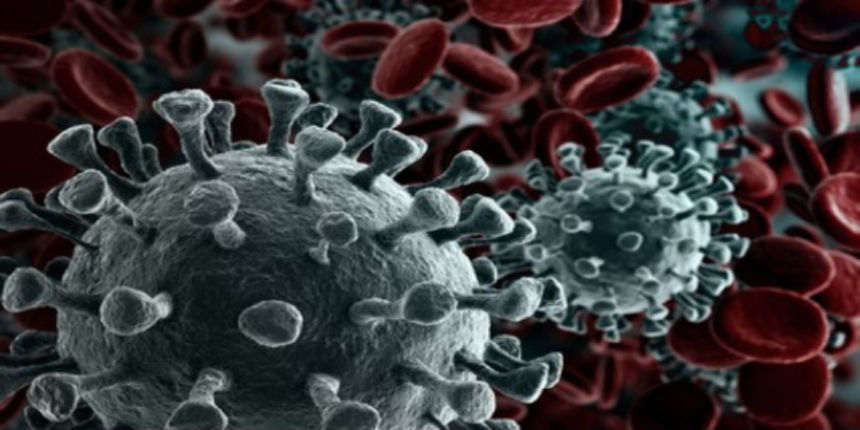Writing About COVID-19 in Your College Essay
- Like last year, essays will likely hold more weight in admission decisions than test scores.
- Both the Common App and Coalition App provide an optional essay space to discuss the pandemic.
- This essay is an opportunity to share your pandemic experience and the lessons learned.
The college admissions process has experienced significant changes as a result of COVID-19, creating new challenges for high school students.
Since the onset of the pandemic, admissions officers have strongly emphasized a more holistic review process. With more colleges adopting (temporary) test-optional policies , more weight is now being placed on personal statements , supplemental essays, and letters of recommendation .
Because COVID-19 has impacted their lives significantly, many high school students wonder whether they should write about the pandemic in their personal statement. The answer, however, truly depends on the individual.

Should You Write About COVID-19 in Your Personal Statement?
Due to the far-reaching consequences of COVID-19, you may be considering using your personal statement to write about the pandemic. While this approach could benefit some, admissions experts hold mixed opinions about whether students should write about this topic in their main college essay.
Your personal statement is supposed to communicate something unique and interesting about yourself . With millions of students across the country experiencing similar situations, using your main essay to write about the pandemic may make it more difficult to differentiate yourself from other applicants.
Additionally, admissions officers have likely read through thousands of essays over the past year detailing students’ experiences with COVID-19. It’s natural to focus on the pandemic and the impacts it’s had on your life, but admissions committees are no doubt experiencing some fatigue from COVID-19-related essays.
That said, there are instances when using your personal statement to address COVID-19 could strengthen your candidacy. For example, if you did something ambitious while stuck at home, such as learning a language, don’t hesitate to write about it.
What Is the Optional COVID-19 College Essay?
If you’re hoping to share your experience with COVID-19, both the Common Application and Coalition Application offer an optional essay section students can use to address the topic.
Those applying through the Common App have 250 words to discuss the pandemic’s impact on their lives, whereas the Coalition App gives you up to 300 words.
In addition to providing students with space to describe how COVID-19 has affected them, this prompt allows students to use the rest of their application to touch on topics beyond COVID-19. As such, we generally recommend students use this COVID-19 section, rather than their personal statement, to discuss the pandemic.
The Common App Prompt
Community disruptions such as COVID-19 and natural disasters can have deep and long-lasting impacts. If you need it, this space is yours to describe those impacts. Colleges care about the effects on your health and well-being, safety, family circumstances, future plans, and education, including access to reliable technology and quiet study spaces. (250-word limit)
The Coalition App Prompt
Natural disasters and emergency situations like the COVID-19 pandemic have impacted the lives of many students, both academically and personally. While entirely optional, you may share information here regarding how any of these events have affected you. (300-word limit)
When Writing a COVID-19 College Essay, DO:
When writing a covid-19 college essay, do not:, how to write a covid-19 essay in 2021-22.
Before answering this prompt, consider whether COVID-19 has affected you in ways that are worth sharing with admissions officers. It’s OK to skip this section. The point here is honesty — avoid making something up or overstating your situation and appearing disingenuous.
Here are some tips for crafting your COVID-19 college essay, should you decide to write one.
Be Concise and Authentic
Space is limited, so make sure you immediately address the prompt and get to the crux of your essay. This could be something like not having adequate internet speed to support remote learning or worrying about a family member who contracted COVID-19. This essay is not meant to serve as a competition for whose life has been most impacted by the pandemic, so be truthful about your situation.
Discuss the Impact and Provide Details
Using clear and effective details is key. For example, if you’ve struggled with staying home most days, discuss how this has impacted you. If you previously spent most of your free time hanging out with friends, maybe the isolation led to a change in how you spend your time and energy. Perhaps the pandemic greatly affected your mental health .
Describe How You Dealt With or Overcame Your Circumstances
The remainder — and majority — of your COVID-19 essay should address how you overcame or dealt with the challenges brought on by the pandemic and whether these resulted in some degree of personal growth.
Maybe your struggles with isolation helped you learn the importance of meditation, allowing you to better understand others who live with anxiety or depression. Or perhaps the newfound time led you to pick up a new hobby. Admissions officers will want to see traits and identifiers that indicate your ability to succeed in college.
What If a College Doesn’t Offer a COVID-19 Essay?
If a college you’re applying to uses an application that doesn’t include space for discussing COVID-19, deciding whether to use your personal statement to address the pandemic becomes a bit trickier.
If your experience with COVID-19 is truly unique and reveals a great deal about you as an individual, your application should naturally stand out. However, if you feel your experience may be too similar to other students’, it may be better to avoid the topic.
Ultimately, if you choose to write about COVID-19 in your personal statement, it should communicate something distinctive about you. While topics around the pandemic can make for compelling pieces, the purpose of the college essay remains the same: to provide a glimpse into who you are as a person and to separate you from other applicants.
Feature Image: elenaleonova / E+ / Getty Images
Smodin > Blog > COVID-19 Essay: Topic Ideas and Best Practices

COVID-19 Essay: Topic Ideas and Best Practices
- Smodin Editorial Team
- Published: November 7, 2024
- All About Content and Writing
Writing a COVID-19 essay involves gathering facts and presenting them in a logical manner. There are a lot of different ideas to address because the pandemic had a massive impact on the world. This includes topics like food security, education for university students, and the well-being of the elderly population.
In this article, we’ll share the different topics that you can tackle to increase your odds of success. You’ll also see how AI tools can help craft your essay to speed up the writing process and overcome writer’s block.
Keep reading to learn how to improve your essay-writing skills for COVID-19 topics.

Table of Contents
How COVID-19 Affected the World Essay: 6 Top Essay Ideas To Consider
It’s no secret that COVID-19 affected the world in a variety of significant ways. Some of these changes you may have felt first-hand or seen from a close distance in your local community. Therefore, writing about these topics is an excellent idea to make the content feel more authentic.
In this section, we’ll share some of the ways the COVID-19 pandemic changed the world, and present to you some noteworthy topics you could explore.
1. Impact on Global Health Systems
COVID-19 exposed significant vulnerabilities in global health systems. That’s because hospitals faced shortages of essential equipment like ventilators and personal protective equipment. Also, overwhelmed healthcare providers struggled to cope with the surge in patients, thereby highlighting the need for better emergency preparedness.
Furthermore, the pandemic also led to innovations in telemedicine and a global push for vaccine development. However, disparities in healthcare access, particularly in developing nations, underscored ongoing inequalities. You can cover any one of these issues in your essay. Try to focus on one aspect of the healthcare system, which you can do by writing a focused thesis statement.
2. Social and Mental Health Consequences
Lockdowns and social distancing measures profoundly impacted people’s social lives and mental health. Isolation and grief from losing loved ones contributed to a rise in anxiety, depression, and other mental health issues.
Additionally, the pandemic disrupted education. This is because students and teachers had to adjust to remote learning. While it’s a great technology, it is not the same as classroom learning. Writing an essay about these topics will hit close to home for many readers.
Also, if you faced difficulties in your education during the pandemic, then covering them will make the content seem more authentic. In fact, you’ll need to complete less research when you can write from first-hand experience.

3. Economic Recession and Financial Instability
COVID-19 triggered a global economic downturn since lockdowns and travel restrictions brought several industries to a halt. This included tourism, retail, and hospitality. Additionally, many businesses were forced to close, thereby leading to mass layoffs and unemployment spikes.
Governments responded with economic stimulus packages, but recovery has been uneven across countries and sectors. Also, the pandemic accelerated shifts toward remote work and e-commerce, which caused long-term changes in labor markets.
You could write an essay tackling a specific aspect of how the economy has changed due to COVID-19. Also, cover if the economy has bounced back in the years after the pandemic spike. This gives you a lot of material to tackle.
Alternatively, you could address the industries that received growth because of the pandemic. This includes gaming and streaming services like Netflix. That’s because people were indoors for the most part and could only enjoy indoor forms of entertainment.
4. Technological Acceleration and Remote Work
COVID-19 forced rapid adoption of digital technologies as millions of people switched to remote work and online learning. For example, companies like Zoom and Microsoft Teams saw massive growth, thereby enabling a more flexible work environment that persists post-pandemic.
Additionally, businesses that previously relied on in-person interaction quickly pivoted to digital platforms. This generated a lot of innovation in fields such as e-commerce, telemedicine, and online education.
However, the shift also highlighted the digital divide, as many people in rural or low-income areas struggled with inadequate internet access. This underscored the need for improved digital infrastructure worldwide.
5. Political Polarization and Governance Challenges
The pandemic intensified political divisions in many countries. For instance, public health measures, such as lockdowns and mask mandates became politically charged topics. Also, some governments struggled to coordinate effective responses, thereby leading to public frustration and protests.
In certain regions, authoritarian regimes used the crisis as an opportunity to consolidate power, while others saw democratic backsliding. If politics is your thing, then there is an array of topics you can tackle in your essay.
6. Global Collaboration and Vaccine Development
While COVID-19 initially led to border closures and isolationism, it also sparked unprecedented global collaboration. This is particularly true in vaccine development. Scientists and researchers from around the world worked together to develop vaccines in record time. This included using technologies like mRNA that had never been deployed on a large scale before.
Additionally, global organizations like the World Health Organization coordinated efforts to distribute vaccines . However, access to these vaccines was an issue, especially in low-income countries. Hence, the pandemic highlighted both the strengths and weaknesses of international cooperation. Exploring this in your essay can be an interesting approach with the right research.

Mistakes To Avoid With a COVID-19 Essay
Now let’s turn our attention to a few notable mistakes you should avoid if you want to write an excellent COVID-19 essay. These suggestions are especially useful if you’re writing an essay on the topic for the first time.
The following tips will help you steer clear of the mistakes beginners tend to make.
- Overgeneralizing the pandemic impact: Avoid making sweeping generalizations about COVID-19’s effects. The pandemic affected different countries, communities, and individuals in unique ways. Recognizing these differences will make your essay more nuanced. For example, some family members had much worse health outcomes than others.
- Ignoring reliable sources: Relying on misinformation or unverified sources weakens your essay. The coronavirus pandemic is a complex and evolving subject that requires credible data from health organizations, governments, and academic studies. Hence, avoid citing conspiracy theories, rumors, or unsubstantiated claims.
- Focusing only on negative outcomes: While COVID-19 caused immense harm, focusing solely on negative outcomes can limit your essay’s scope. Instead, consider also discussing positive developments. Top examples include advancements in digital technology, global cooperation for vaccine development, or renewed focus on public health.
- Oversimplifying scientific concepts: COVID-19 involves complex scientific concepts related to virology, immunology, and public health. Therefore, avoid oversimplifying these ideas or misrepresenting them. You’ll want to ensure that you accurately explain terms like herd immunity, virus transmission, or vaccine efficacy.
- Avoid controversial topics entirely: Shying away from controversial topics like vaccine hesitancy or government responses weakens your essay’s depth. While these issues are sensitive, they are crucial to understanding the full impact of the pandemic. Also, addressing these subjects with a balanced, fact-based approach demonstrates critical thinking and adds complexity to your analysis.

Best Practices for Writing a Cause and Effects of COVID-19 Essay
Using the best practices when tackling a COVID-19 essay will increase your chances of getting a top grade. Some of these suggestions are a good idea for all types of essays you can work on in the future.
How To Research the Cause and Effects
When researching the causes and effects of COVID-19, rely on credible sources like the World Health Organization, Centers for Disease Control and Prevention, and peer-reviewed medical journals. Furthermore, use reliable databases like PubMed or Google Scholar for academic studies.
Additionally, you’ll want to focus on the biological causes of the virus, such as its transmission and mutation. Compare data across different regions to understand varying effects. These strategies will work great when gathering enough material to write a persuasive essay on the topic of COVID-19.
Tips for Choosing the Right COVID-19 Topic
Choosing the right COVID-19 topic for your essay is crucial for creating an engaging and insightful piece. Start by considering your audience. If you are writing for a general audience, opt for topics that are accessible. This includes the impact of COVID-19 on daily life, mental health, or the economy.
For academic or specialized audiences, more technical subjects are a good choice. For example, vaccine development, virus mutations, or pandemic response strategies might be more appropriate.
Also, focus on current and relevant issues. As the pandemic is still evolving, choose topics that reflect the latest developments. This ensures your essay is timely and offers fresh insights. After all, the subject matter of COVID-19 is still evolving, and covering old news isn’t the best approach.
Another tip is to select a topic that genuinely interests you. Passion for a subject often translates into better research and writing. This might be about the effect of the pandemic on education, global trade, or environmental changes. Hence, select a topic that resonates with you to maintain motivation throughout the writing process.
Using AI Tools for the Best Results
AI tools can provide a lot of help with your COVID-19 essay, thereby boosting your grade if used correctly. Tools such as an AI essay writer can speed up the writing process and help with overcoming writer’s block.
Here are some of the top features of AI tools to consider to boost your writing performance:
- Research assistance: AI tools can quickly gather information from reputable sources about COVID-19, thereby saving time in the research process. Tools like academic databases and AI-powered search engines can filter relevant articles, studies, and news.
- Grammar and style improvements: AI-powered grammar checkers help refine your essay by identifying grammatical errors, awkward phrasing, and sentence structure issues. These tools also offer suggestions for improving readability.
- Plagiarism detection: Using AI-based plagiarism detection tools ensures your COVID-19 essay is original. These tools scan your writing against extensive databases to detect any unintentional copying. Therefore, by identifying matching content, you can rephrase or properly cite sources.
- Topic generation and idea expansion: AI homework solvers can generate essay topics or provide prompts for deeper exploration of specific COVID-19-related themes. These tools help spark creativity and ensure you cover all angles of a subject.
- Summarizing complex research: AI tools like a Text Summarizer can condense lengthy COVID-19 research articles into concise summaries. This allows you to quickly grasp the main ideas of complex studies without needing to read through pages of data.

Write Your COVID-19 Essay With Smodin and Impress Your Readers
There is a vast number of topics that you can cover with your essay on COVID-19. This includes aspects like the effects on human life, food insecurity, self-isolation, and the need for social support. Pick a topic that you resonate with to have a more pleasant writing experience.
When crafting your COVID-19 essay you can use the help of AI tools to fast-track the process. These can offer you help with things like topic generation, grammar suggestions, and plagiarism detection. Using these tools can get you a better grade and help you finish the work faster.
Are you unsure of what AI tool to choose for your essay? Then consider taking advantage of the AI Essay Writer at Smodin. The well-optimized user interface makes using the tool simple and fast. Also, you can give it a try for free with the freemium plan.
So what are you waiting for? Try Smodin right now to write your best essay yet.

Frequently Asked Questions
What topics can i explore in a covid-19 essay.
The topics you can explore in a COVID-19 essay include the health impact, economic effects, mental health consequences, global response, and vaccination strategies. Other topics might be long-term impacts, environmental effects, or the role of technology during the pandemic.
Ideally, you will select the topic that you feel passionate about. This typically makes the research and writing process more enjoyable.
How do I address sensitive topics like vaccine hesitancy or government response?
Tackle sensitive topics with a balanced and fact-based approach. Also, avoid personal bias and rely on credible data to present both sides of the issue. Presenting different perspectives also gives you more topics to cover in an essay.
You’ll also want to acknowledge different perspectives without promoting misinformation. Therefore, you need to fact-check everything by using credible sources. You’ll improve at doing this as you write more essays.
Can I discuss personal experiences in a COVID-19 essay?
Yes, you can incorporate personal experiences in a COVID-19 essay if they are relevant to the topic and support the argument. You’ll find that personal anecdotes can add depth and a human element to your essay. However, they should be balanced with factual research and analysis.
How do I conclude a COVID-19 essay effectively?
You can conclude a COVID-19 essay by summarizing the key points without repeating them with the same wording. Instead, emphasize the broader significance of your findings. If possible, suggest long-term implications or future trends.
You can also highlight the lessons learned from the pandemic and how they could shape the future. Leaving the reader with something to ponder after they have read the essay can leave a lasting impression.
How long should a COVID-19 essay be?
The length depends on the assignment requirements or publication guidelines. A standard essay might be 500-1,000 words, while research papers could range from 1,500 to 5,000 words or more.
Therefore, be sure to follow your instructor’s or editor’s word count guidelines. Also, make sure you cover the topic thoroughly without excessive repetition. You may get a better grade if you write less, but offer higher-quality thoughts and ideas.
- Engineering and Architecture
- Management and Business Administration
- Medicine and Allied Sciences
- Animation and Design
- Media, Mass Communication and Journalism
- Finance & Accounts
- Computer Application and IT
- Hospitality and Tourism
- Competition
- Study Abroad
- Arts, Commerce & Sciences
- Online Courses and Certifications
Covid 19 Essay in English
Essay on Covid -19: In a very short amount of time, coronavirus has spread globally. It has had an enormous impact on people's lives, economy, and societies all around the world, affecting every country. Governments have had to take severe measures to try and contain the pandemic. The virus has altered our way of life in many ways, including its effects on our health and our economy. Here are a few sample essays on ‘CoronaVirus’.
10 Lines on Covid 19
100 words essay on covid 19, 200 words essay on covid 19, 500 words essay on covid 19.

- COVID-19 was first identified in Wuhan, China in December 2019.
- It is a novel coronavirus that spreads through respiratory droplets when an infected person coughs, sneezes or talks.
- The common symptoms of COVID 19 include fever, cough, shortness of breath, and loss of taste or smell.
- Various vaccines such as Pfizer, Moderna and AstraZeneca were developed to reduce the spread of coronavirus.
- It caused millions of deaths worldwide and also led to economic disruptions. It affected many industries and global supply chains.
- Due to coronavirus, the government implemented lockdowns and restricted travelling.
- Many affected citizens were quarantined to prevent the virus from spreading.
- Schools and colleges were closed. However, online classes were started but due to bad network it affected many students.
- Hospitals were flooded with patients suffering from virus.
- The virus led to a general feeling of anxiety and uncertainty, as people became more aware and fearful of contracting the disease.
COVID-19 or Corona Virus is a novel coronavirus that was first identified in 2019. It is similar to other coronaviruses, such as SARS-CoV and MERS-CoV, but it is more contagious and has caused more severe respiratory illness in people who have been infected. The novel coronavirus became a global pandemic in a very short period of time. It has affected lives, economies and societies across the world, leaving no country untouched. The virus has caused governments to take drastic measures to try and contain it. From health implications to economic and social ramifications, COVID-19 impacted every part of our lives. It has been more than 2 years since the pandemic hit and the world is still recovering from its effects.
Since the outbreak of COVID-19, the world has been impacted in a number of ways. For one, the global economy has taken a hit as businesses have been forced to close their doors. This has led to widespread job losses and an increase in poverty levels around the world. Additionally, countries have had to impose strict travel restrictions in an attempt to contain the virus, which has resulted in a decrease in tourism and international trade. Furthermore, the pandemic has put immense pressure on healthcare systems globally, as hospitals have been overwhelmed with patients suffering from the virus. Lastly, the outbreak has led to a general feeling of anxiety and uncertainty, as people are fearful of contracting the disease.
My Experience of COVID-19
I still remember how abruptly colleges and schools shut down in March 2020. I was a college student at that time and I was under the impression that everything would go back to normal in a few weeks. I could not have been more wrong. The situation only got worse every week and the government had to impose a lockdown. There were so many restrictions in place. For example, we had to wear face masks whenever we left the house, and we could only go out for essential errands. Restaurants and shops were only allowed to operate at take-out capacity, and many businesses were shut down.
In the current scenario, coronavirus is dominating all aspects of our lives. The coronavirus pandemic has wreaked havoc upon people’s lives, altering the way we live and work in a very short amount of time. It has revolutionised how we think about health care, education, and even social interaction. This virus has had long-term implications on our society, including its impact on mental health, economic stability, and global politics. But we as individuals can help to mitigate these effects by taking personal responsibility to protect themselves and those around them from infection.
Effects of CoronaVirus on Education
The outbreak of coronavirus has had a significant impact on education systems around the world. In China, where the virus originated, all schools and universities were closed for several weeks in an effort to contain the spread of the disease. Many other countries have followed suit, either closing schools altogether or suspending classes for a period of time.
This has resulted in a major disruption to the education of millions of students. Some have been able to continue their studies online, but many have not had access to the internet or have not been able to afford the costs associated with it. This has led to a widening of the digital divide between those who can afford to continue their education online and those who cannot.
The closure of schools has also had a negative impact on the mental health of many students. With no face-to-face contact with friends and teachers, some students have felt isolated and anxious. This has been compounded by the worry and uncertainty surrounding the virus itself.
The situation with coronavirus has improved and schools have been reopened but students are still catching up with the gap of 2 years that the pandemic created. In the meantime, governments and educational institutions are working together to find ways to support students and ensure that they are able to continue their education despite these difficult circumstances.
Effects of CoronaVirus on Economy
The outbreak of the coronavirus has had a significant impact on the global economy. The virus, which originated in China, has spread to over two hundred countries, resulting in widespread panic and a decrease in global trade. As a result of the outbreak, many businesses have been forced to close their doors, leading to a rise in unemployment. In addition, the stock market has taken a severe hit.
Effects of CoronaVirus on Health
The effects that coronavirus has on one's health are still being studied and researched as the virus continues to spread throughout the world. However, some of the potential effects on health that have been observed thus far include respiratory problems, fever, and coughing. In severe cases, pneumonia, kidney failure, and death can occur. It is important for people who think they may have been exposed to the virus to seek medical attention immediately so that they can be treated properly and avoid any serious complications. There is no specific cure or treatment for coronavirus at this time, but there are ways to help ease symptoms and prevent the virus from spreading.
- 2-Minute Speech on COVID-19 for Students
- Speech on Online Education
- 2-Minute Speech on Environment
Applications for Admissions are open.
Jee main important physics formulas.
As per latest 2024 syllabus. Physics formulas, equations, & laws of class 11 & 12th chapters
JEE Main Important Chemistry formulas
As per latest 2024 syllabus. Chemistry formulas, equations, & laws of class 11 & 12th chapters
TOEFL ® Registrations 2024
Accepted by more than 11,000 universities in over 150 countries worldwide
Pearson | PTE
Register now for PTE & Unlock 20% OFF : Use promo code: 'C360SPL20'. Valid till 31st DEC'24! Trusted by 3,500+ universities globally
JEE Main high scoring chapters and topics
As per latest 2024 syllabus. Study 40% syllabus and score upto 100% marks in JEE
JEE Main Important Mathematics Formulas
As per latest 2024 syllabus. Maths formulas, equations, & theorems of class 11 & 12th chapters
Download Careers360 App
All this at the convenience of your phone.
Regular Exam Updates
Best College Recommendations
College & Rank predictors
Detailed Books and Sample Papers
Question and Answers
Scan and download the app
Writing about COVID-19 in a college admission essay
by: Venkates Swaminathan | Updated: September 14, 2020
Print article

For students applying to college using the CommonApp, there are several different places where students and counselors can address the pandemic’s impact. The different sections have differing goals. You must understand how to use each section for its appropriate use.
The CommonApp COVID-19 question
First, the CommonApp this year has an additional question specifically about COVID-19 :
Community disruptions such as COVID-19 and natural disasters can have deep and long-lasting impacts. If you need it, this space is yours to describe those impacts. Colleges care about the effects on your health and well-being, safety, family circumstances, future plans, and education, including access to reliable technology and quiet study spaces. Please use this space to describe how these events have impacted you.
This question seeks to understand the adversity that students may have had to face due to the pandemic, the move to online education, or the shelter-in-place rules. You don’t have to answer this question if the impact on you wasn’t particularly severe. Some examples of things students should discuss include:
- The student or a family member had COVID-19 or suffered other illnesses due to confinement during the pandemic.
- The candidate had to deal with personal or family issues, such as abusive living situations or other safety concerns
- The student suffered from a lack of internet access and other online learning challenges.
- Students who dealt with problems registering for or taking standardized tests and AP exams.
Jeff Schiffman of the Tulane University admissions office has a blog about this section. He recommends students ask themselves several questions as they go about answering this section:
- Are my experiences different from others’?
- Are there noticeable changes on my transcript?
- Am I aware of my privilege?
- Am I specific? Am I explaining rather than complaining?
- Is this information being included elsewhere on my application?
If you do answer this section, be brief and to-the-point.
Counselor recommendations and school profiles
Second, counselors will, in their counselor forms and school profiles on the CommonApp, address how the school handled the pandemic and how it might have affected students, specifically as it relates to:
- Grading scales and policies
- Graduation requirements
- Instructional methods
- Schedules and course offerings
- Testing requirements
- Your academic calendar
- Other extenuating circumstances
Students don’t have to mention these matters in their application unless something unusual happened.
Writing about COVID-19 in your main essay
Write about your experiences during the pandemic in your main college essay if your experience is personal, relevant, and the most important thing to discuss in your college admission essay. That you had to stay home and study online isn’t sufficient, as millions of other students faced the same situation. But sometimes, it can be appropriate and helpful to write about something related to the pandemic in your essay. For example:
- One student developed a website for a local comic book store. The store might not have survived without the ability for people to order comic books online. The student had a long-standing relationship with the store, and it was an institution that created a community for students who otherwise felt left out.
- One student started a YouTube channel to help other students with academic subjects he was very familiar with and began tutoring others.
- Some students used their extra time that was the result of the stay-at-home orders to take online courses pursuing topics they are genuinely interested in or developing new interests, like a foreign language or music.
Experiences like this can be good topics for the CommonApp essay as long as they reflect something genuinely important about the student. For many students whose lives have been shaped by this pandemic, it can be a critical part of their college application.
Want more? Read 6 ways to improve a college essay , What the &%$! should I write about in my college essay , and Just how important is a college admissions essay? .


Homes Nearby
Homes for rent and sale near schools

How our schools are (and aren't) addressing race

The truth about homework in America

What should I write my college essay about?
What the #%@!& should I write about in my college essay?
Yes! Sign me up for updates relevant to my child's grade.
Please enter a valid email address
Thank you for signing up!
Server Issue: Please try again later. Sorry for the inconvenience
How to Write About Coronavirus in a College Essay
Students can share how they navigated life during the coronavirus pandemic in a full-length essay or an optional supplement.
Writing About COVID-19 in College Essays

Getty Images
Experts say students should be honest and not limit themselves to merely their experiences with the pandemic.
The global impact of COVID-19, the disease caused by the novel coronavirus, means colleges and prospective students alike are in for an admissions cycle like no other. Both face unprecedented challenges and questions as they grapple with their respective futures amid the ongoing fallout of the pandemic.
Colleges must examine applicants without the aid of standardized test scores for many – a factor that prompted many schools to go test-optional for now . Even grades, a significant component of a college application, may be hard to interpret with some high schools adopting pass-fail classes last spring due to the pandemic. Major college admissions factors are suddenly skewed.
"I can't help but think other (admissions) factors are going to matter more," says Ethan Sawyer, founder of the College Essay Guy, a website that offers free and paid essay-writing resources.
College essays and letters of recommendation , Sawyer says, are likely to carry more weight than ever in this admissions cycle. And many essays will likely focus on how the pandemic shaped students' lives throughout an often tumultuous 2020.
But before writing a college essay focused on the coronavirus, students should explore whether it's the best topic for them.
Writing About COVID-19 for a College Application
Much of daily life has been colored by the coronavirus. Virtual learning is the norm at many colleges and high schools, many extracurriculars have vanished and social lives have stalled for students complying with measures to stop the spread of COVID-19.
"For some young people, the pandemic took away what they envisioned as their senior year," says Robert Alexander, dean of admissions, financial aid and enrollment management at the University of Rochester in New York. "Maybe that's a spot on a varsity athletic team or the lead role in the fall play. And it's OK for them to mourn what should have been and what they feel like they lost, but more important is how are they making the most of the opportunities they do have?"
That question, Alexander says, is what colleges want answered if students choose to address COVID-19 in their college essay.
But the question of whether a student should write about the coronavirus is tricky. The answer depends largely on the student.
"In general, I don't think students should write about COVID-19 in their main personal statement for their application," Robin Miller, master college admissions counselor at IvyWise, a college counseling company, wrote in an email.
"Certainly, there may be exceptions to this based on a student's individual experience, but since the personal essay is the main place in the application where the student can really allow their voice to be heard and share insight into who they are as an individual, there are likely many other topics they can choose to write about that are more distinctive and unique than COVID-19," Miller says.
Opinions among admissions experts vary on whether to write about the likely popular topic of the pandemic.
"If your essay communicates something positive, unique, and compelling about you in an interesting and eloquent way, go for it," Carolyn Pippen, principal college admissions counselor at IvyWise, wrote in an email. She adds that students shouldn't be dissuaded from writing about a topic merely because it's common, noting that "topics are bound to repeat, no matter how hard we try to avoid it."
Above all, she urges honesty.
"If your experience within the context of the pandemic has been truly unique, then write about that experience, and the standing out will take care of itself," Pippen says. "If your experience has been generally the same as most other students in your context, then trying to find a unique angle can easily cross the line into exploiting a tragedy, or at least appearing as though you have."
But focusing entirely on the pandemic can limit a student to a single story and narrow who they are in an application, Sawyer says. "There are so many wonderful possibilities for what you can say about yourself outside of your experience within the pandemic."
He notes that passions, strengths, career interests and personal identity are among the multitude of essay topic options available to applicants and encourages them to probe their values to help determine the topic that matters most to them – and write about it.
That doesn't mean the pandemic experience has to be ignored if applicants feel the need to write about it.
Writing About Coronavirus in Main and Supplemental Essays
Students can choose to write a full-length college essay on the coronavirus or summarize their experience in a shorter form.
To help students explain how the pandemic affected them, The Common App has added an optional section to address this topic. Applicants have 250 words to describe their pandemic experience and the personal and academic impact of COVID-19.
"That's not a trick question, and there's no right or wrong answer," Alexander says. Colleges want to know, he adds, how students navigated the pandemic, how they prioritized their time, what responsibilities they took on and what they learned along the way.
If students can distill all of the above information into 250 words, there's likely no need to write about it in a full-length college essay, experts say. And applicants whose lives were not heavily altered by the pandemic may even choose to skip the optional COVID-19 question.
"This space is best used to discuss hardship and/or significant challenges that the student and/or the student's family experienced as a result of COVID-19 and how they have responded to those difficulties," Miller notes. Using the section to acknowledge a lack of impact, she adds, "could be perceived as trite and lacking insight, despite the good intentions of the applicant."
To guard against this lack of awareness, Sawyer encourages students to tap someone they trust to review their writing , whether it's the 250-word Common App response or the full-length essay.
Experts tend to agree that the short-form approach to this as an essay topic works better, but there are exceptions. And if a student does have a coronavirus story that he or she feels must be told, Alexander encourages the writer to be authentic in the essay.
"My advice for an essay about COVID-19 is the same as my advice about an essay for any topic – and that is, don't write what you think we want to read or hear," Alexander says. "Write what really changed you and that story that now is yours and yours alone to tell."
Sawyer urges students to ask themselves, "What's the sentence that only I can write?" He also encourages students to remember that the pandemic is only a chapter of their lives and not the whole book.
Miller, who cautions against writing a full-length essay on the coronavirus, says that if students choose to do so they should have a conversation with their high school counselor about whether that's the right move. And if students choose to proceed with COVID-19 as a topic, she says they need to be clear, detailed and insightful about what they learned and how they adapted along the way.
"Approaching the essay in this manner will provide important balance while demonstrating personal growth and vulnerability," Miller says.
Pippen encourages students to remember that they are in an unprecedented time for college admissions.
"It is important to keep in mind with all of these (admission) factors that no colleges have ever had to consider them this way in the selection process, if at all," Pippen says. "They have had very little time to calibrate their evaluations of different application components within their offices, let alone across institutions. This means that colleges will all be handling the admissions process a little bit differently, and their approaches may even evolve over the course of the admissions cycle."
Searching for a college? Get our complete rankings of Best Colleges.
10 Ways to Discover College Essay Ideas

Tags: students , colleges , college admissions , college applications , college search , Coronavirus
2025 Best Colleges

Search for your perfect fit with the U.S. News rankings of colleges and universities.
College Admissions: Get a Step Ahead!
Sign up to receive the latest updates from U.S. News & World Report and our trusted partners and sponsors. By clicking submit, you are agreeing to our Terms and Conditions & Privacy Policy .
Ask an Alum: Making the Most Out of College
You May Also Like
How to become an archaeologist.
Anna Fiorino Dec. 6, 2024

College Rankings of the Big Ten Schools
Cole Claybourn Dec. 4, 2024

Renewing the FAFSA: What to Know
Sarah Wood Dec. 4, 2024

Colleges With Microbreweries on Campus
Cole Claybourn Dec. 3, 2024

The 9 Oldest U.S. Colleges
Sarah Wood Nov. 27, 2024

Will the Ed Department Be Dissolved?
Sarah Wood and Cole Claybourn Nov. 27, 2024

Impress College Admissions Officers
Anayat Durrani Nov. 25, 2024

New Requirement for CDS Submissions
Eric Brooks , Kenneth Hines and Robert Morse Nov. 22, 2024

Primary Care vs. Research Med Schools
Anna Fiorino Nov. 21, 2024

What to Wear to a College Interview
LaMont Jones, Jr. Nov. 19, 2024

- College Essay
- Argumentative Essay
- Expository Essay
- Narrative Essay
- Descriptive Essay
- Scholarship Essay
- Admission Essay
- Reflective Essay
- Nursing Essay
- Economics Essay
Assignments
- Term Papers
- Research Papers
- Case Studies
- Dissertation
- Presentation
- Write My Assignment
- Editing Help
- Cheap Essay Writing
- How to Order
Persuasive Essay Guide
Persuasive Essay About Covid19
How to Write a Persuasive Essay About Covid19 | Examples & Tips
14 min read

People also read
A Comprehensive Guide to Writing an Effective Persuasive Essay
A Catalogue of 300 Best Persuasive Essay Topics for Students
Persuasive Essay Outline - A Complete Guide
30+ Persuasive Essay Examples To Get You Started
Read Excellent Examples of Persuasive Essay About Gun Control
How To Write A Persuasive Essay On Abortion
Learn to Write a Persuasive Essay About Business With 5 Best Examples
Check Out 14 Persuasive Essays About Online Education Examples
Persuasive Essay About Smoking - Making a Powerful Argument with Examples
Are you looking to write a persuasive essay about the Covid-19 pandemic?
Writing a compelling and informative essay about this global crisis can be challenging. It requires researching the latest information, understanding the facts, and presenting your argument persuasively.
But don’t worry! with some guidance from experts, you’ll be able to write an effective and persuasive essay about Covid-19.
In this blog post, we’ll outline the basics of writing a persuasive essay . We’ll provide clear examples, helpful tips, and essential information for crafting your own persuasive piece on Covid-19.
Read on to get started on your essay.
- 1. Steps to Write a Persuasive Essay About Covid-19
- 2. Examples of Persuasive Essay About COVID-19
- 3. Examples of Persuasive Essay About COVID-19 Vaccine
- 4. Examples of Persuasive Essay About COVID-19 Integration
- 5. Examples of Argumentative Essay About Covid 19
- 6. Examples of Persuasive Speeches About Covid-19
- 7. Tips to Write a Persuasive Essay About Covid-19
- 8. Common Topics for a Persuasive Essay on COVID-19
Steps to Write a Persuasive Essay About Covid-19
Here are the steps to help you write a persuasive essay on this topic, along with an example essay:
Step 1: Choose a Specific Thesis Statement
Your thesis statement should clearly state your position on a specific aspect of COVID-19. It should be debatable and clear. For example:
Step 2: Research and Gather Information
Collect reliable and up-to-date information from reputable sources to support your thesis statement. This may include statistics, expert opinions, and scientific studies. For instance:
- COVID-19 vaccination effectiveness data
- Information on vaccine mandates in different countries
- Expert statements from health organizations like the WHO or CDC
Step 3: Outline Your Essay
Create a clear and organized outline to structure your essay. A persuasive essay typically follows this structure:
- Introduction
- Background Information
- Body Paragraphs (with supporting evidence)
- Counterarguments (addressing opposing views)
Step 4: Write the Introduction
In the introduction, grab your reader's attention and present your thesis statement. For example:
Step 5: Provide Background Information
Offer context and background information to help your readers understand the issue better. For instance:
Step 6: Develop Body Paragraphs
Each body paragraph should present a single point or piece of evidence that supports your thesis statement. Use clear topic sentences , evidence, and analysis. Here's an example:
Step 7: Address Counterarguments
Acknowledge opposing viewpoints and refute them with strong counterarguments. This demonstrates that you've considered different perspectives. For example:
Step 8: Write the Conclusion
Summarize your main points and restate your thesis statement in the conclusion. End with a strong call to action or thought-provoking statement. For instance:
Step 9: Revise and Proofread
Edit your essay for clarity, coherence, grammar, and spelling errors. Ensure that your argument flows logically.
Step 10: Cite Your Sources
Include proper citations and a bibliography page to give credit to your sources.
Remember to adjust your approach and arguments based on your target audience and the specific angle you want to take in your persuasive essay about COVID-19.

Paper Due? Why Suffer? That's our Job!
Examples of Persuasive Essay About COVID-19
When writing a persuasive essay about the COVID-19 pandemic, it’s important to consider how you want to present your argument. To help you get started, here are some example essays for you to read:
Here is another example explaining How COVID-19 has changed our lives essay:
Let’s look at another sample essay:
Check out some more PDF examples below:
Persuasive Essay About Covid-19 Pandemic
Sample Of Persuasive Essay About Covid-19
Persuasive Essay About Covid-19 In The Philippines - Example
If you're in search of a compelling persuasive essay on business, don't miss out on our “ persuasive essay about business ” blog!
Examples of Persuasive Essay About COVID-19 Vaccine
Covid19 vaccines are one of the ways to prevent the spread of COVID-19, but they have been a source of controversy. Different sides argue about the benefits or dangers of the new vaccines. Whatever your point of view is, writing a persuasive essay about it is a good way of organizing your thoughts and persuading others.
A persuasive essay about the COVID-19 vaccine could consider the benefits of getting vaccinated as well as the potential side effects.
Below are some examples of persuasive essays on getting vaccinated for Covid-19.
Covid19 Vaccine Persuasive Essay
Persuasive Essay on Covid Vaccines
Interested in thought-provoking discussions on abortion? Read our persuasive essay about abortion blog to eplore arguments!
Examples of Persuasive Essay About COVID-19 Integration
Covid19 has drastically changed the way people interact in schools, markets, and workplaces. In short, it has affected all aspects of life. However, people have started to learn to live with Covid19.
Writing a persuasive essay about it shouldn't be stressful. Read the sample essay below to get an idea for your own essay about Covid19 integration.
Persuasive Essay About Working From Home During Covid19
Searching for the topic of Online Education? Our persuasive essay about online education is a must-read.
Examples of Argumentative Essay About Covid 19
Covid-19 has been an ever-evolving issue, with new developments and discoveries being made on a daily basis.
Writing an argumentative essay about such an issue is both interesting and challenging. It allows you to evaluate different aspects of the pandemic, as well as consider potential solutions.
Here are some examples of argumentative essays on Covid19.
Argumentative Essay About Covid19 Sample
Argumentative Essay About Covid19 With Introduction Body and Conclusion
Looking for a persuasive take on the topic of smoking? You'll find it all related arguments in out Persuasive Essay About Smoking blog!
Examples of Persuasive Speeches About Covid-19
Do you need to prepare a speech about Covid19 and need examples? We have them for you!
Persuasive speeches about Covid-19 can provide the audience with valuable insights on how to best handle the pandemic. They can be used to advocate for specific changes in policies or simply raise awareness about the virus.
Check out some examples of persuasive speeches on Covid-19:
Persuasive Speech About Covid-19 Example
Persuasive Speech About Vaccine For Covid-19
You can also read persuasive essay examples on other topics to master your persuasive techniques!
Tips to Write a Persuasive Essay About Covid-19
Writing a persuasive essay about COVID-19 requires a thoughtful approach to present your arguments effectively.
Here are some tips to help you craft a compelling persuasive essay on this topic:
- Choose a Specific Angle: Narrow your focus to a specific aspect of COVID-19, like vaccination or public health measures.
- Provide Credible Sources: Support your arguments with reliable sources like scientific studies and government reports.
- Use Persuasive Language: Employ ethos, pathos, and logos , and use vivid examples to make your points relatable.
- Organize Your Essay: Create a solid persuasive essay outline and ensure a logical flow, with each paragraph focusing on a single point.
- Emphasize Benefits: Highlight how your suggestions can improve public health, safety, or well-being.
- Use Visuals: Incorporate graphs, charts, and statistics to reinforce your arguments.
- Call to Action: End your essay conclusion with a strong call to action, encouraging readers to take a specific step.
- Revise and Edit: Proofread for grammar, spelling, and clarity, ensuring smooth writing flow.
- Seek Feedback: Have someone else review your essay for valuable insights and improvements.
Tough Essay Due? Hire Tough Writers!
Common Topics for a Persuasive Essay on COVID-19
Here are some persuasive essay topics on COVID-19:
- The Importance of Vaccination Mandates for COVID-19 Control
- Balancing Public Health and Personal Freedom During a Pandemic
- The Economic Impact of Lockdowns vs. Public Health Benefits
- The Role of Misinformation in Fueling Vaccine Hesitancy
- Remote Learning vs. In-Person Education: What's Best for Students?
- The Ethics of Vaccine Distribution: Prioritizing Vulnerable Populations
- The Mental Health Crisis Amidst the COVID-19 Pandemic
- The Long-Term Effects of COVID-19 on Healthcare Systems
- Global Cooperation vs. Vaccine Nationalism in Fighting the Pandemic
- The Future of Telemedicine: Expanding Healthcare Access Post-COVID-19
In search of more inspiring topics for your next persuasive essay? Our persuasive essay topics blog has plenty of ideas!
To sum it up,
You’ve explored great sample essays and picked up some useful tips. You now have the tools you need to write a persuasive essay about Covid-19. So don’t let doubts hold you back—start writing!
If you’re feeling stuck or need a bit of extra help, don’t worry! MyPerfectWords.com offers a professional persuasive essay writing service that can assist you. Our experienced essay writers are ready to help you craft a well-structured, insightful paper on Covid-19.
Just place your “ do my essay for me ” request today, and let us take care of the rest!
Frequently Asked Questions
What is a good title for a covid-19 essay.
A good title for a COVID-19 essay should be clear, engaging, and reflective of the essay's content. Examples include:
- "The Impact of COVID-19 on Global Health"
- "How COVID-19 Has Transformed Our Daily Lives"
- "COVID-19: Lessons Learned and Future Implications"
How do I write an informative essay about COVID-19?
To write an informative essay about COVID-19, follow these steps:
- Choose a specific focus: Select a particular aspect of COVID-19, such as its transmission, symptoms, or vaccines.
- Research thoroughly: Gather information from credible sources like scientific journals and official health organizations.
- Organize your content: Structure your essay with an introduction, body paragraphs, and a conclusion.
- Present facts clearly: Use clear, concise language to convey information accurately.
- Include visuals: Use charts or graphs to illustrate data and make your essay more engaging.
How do I write an expository essay about COVID-19?
To write an expository essay about COVID-19, follow these steps:
- Select a clear topic: Focus on a specific question or issue related to COVID-19.
- Conduct thorough research: Use reliable sources to gather information.
- Create an outline: Organize your essay with an introduction, body paragraphs, and a conclusion.
- Explain the topic: Use facts and examples to explain the chosen aspect of COVID-19 in detail.
- Maintain objectivity: Present information in a neutral and unbiased manner.
- Edit and revise: Proofread your essay for clarity, coherence, and accuracy.

Write Essay Within 60 Seconds!

Caleb S. has been providing writing services for over five years and has a Masters degree from Oxford University. He is an expert in his craft and takes great pride in helping students achieve their academic goals. Caleb is a dedicated professional who always puts his clients first.
Struggling With Your Paper?
Get a custom paper written at
With a FREE Turnitin report, and a 100% money-back guarantee
LIMITED TIME ONLY!
Keep reading

OFFER EXPIRES SOON!

Weekend Edition Saturday
Listen live.

Wait Wait...Don't Tell Me
Wait Wait... Don't Tell Me! is NPR's weekly quiz program. Each week on the radio you can test your knowledge against some of the best and brightest in the news and entertainment world while figuring out what's real news and what's made up.
Coronavirus: The world has come together to flatten the curve. Can we stay united to tackle other crises?
Watching the world come together gives me hope for the future, writes mira patel, a high school junior..

Mira Patel and her sister Veda. (Courtesy of Dee Patel)
Related Content

This 24-year-old entrepreneur is helping Black-owned restaurants survive coronavirus
Black and Mobile is an online delivery service that caters to Black-owned restaurants. The coronavirus shutdown has increased demand for its service.
5 years ago

Home desks won’t replace Philly’s high-rise office towers anytime soon, analysts say
Philadelphia’s office market might fare better post-coronavirus than those of other U.S. cities, CBRE analysts said in a new report.
Before the pandemic, I had often heard adults say that young people would lose the ability to connect in-person with others due to our growing dependence on technology and social media. However, this stay-at-home experience has proven to me that our elders’ worry is unnecessary. Because isolation isn’t in human nature, and no advancement in technology could replace our need to meet in person, especially when it comes to learning.
As the weather gets warmer and we approach summertime, it’s going to be more and more tempting for us teenagers to go out and do what we have always done: hang out and have fun. Even though the decision-makers are adults, everyone has a role to play and we teens can help the world move forward by continuing to self-isolate. It’s incredibly important that in the coming weeks, we respect the government’s effort to contain the spread of the coronavirus.
In the meantime, we can find creative ways to stay connected and continue to do what we love. Personally, I see many 6-feet-apart bike rides and Zoom calls in my future.
If there is anything that this pandemic has made me realize, it’s how connected we all are. At first, the infamous coronavirus seemed to be a problem in China, which is worlds away. But slowly, it steadily made its way through various countries in Europe, and inevitably reached us in America. What was once framed as a foreign virus has now hit home.
Watching the global community come together, gives me hope, as a teenager, that in the future we can use this cooperation to combat climate change and other catastrophes.
As COVID-19 continues to creep its way into each of our communities and impact the way we live and communicate, I find solace in the fact that we face what comes next together, as humanity.
When the day comes that my generation is responsible for dealing with another crisis, I hope we can use this experience to remind us that moving forward requires a joint effort.
Mira Patel is a junior at Strath Haven High School and is an education intern at the Foreign Policy Research Institute in Philadelphia. Follow her on Instagram here.
Becoming a storyteller at WHYY, your local public media station, is easier than you might think. Text STORYTELLER to 267-494-9949 to learn more.
WHYY is your source for fact-based, in-depth journalism and information. As a nonprofit organization, we rely on financial support from readers like you. Please give today.
Part of the series

Coronavirus Pandemic
You may also like.

‘Really shocked’; Secret Santa visits 2 North Philly elementary schools
Temple University police and an anonymous donor awarded new bicycles to students at two elementary schools and Norris Homes in North Philly.
16 hours ago

Threats and violence suspend high school football games Friday night
Fight breaks out at a game between Pennsauken and Camden High Schools, threats suspend games in Chester and Northampton Counties.
3 years ago

Montco high school senior reflects on missing experiences because of coronavirus
Grace Honeyman, a senior at Harriton High School, talks with her father about how she’s dealing with missing milestones due to coronavirus.
Want a digest of WHYY’s programs, events & stories? Sign up for our weekly newsletter.
Together we can reach 100% of WHYY’s fiscal year goal

IMAGES
VIDEO
COMMENTS
This year, the Common App is including a special 250-word section allowing students to describe the impacts of COVID-19 on their lives. Here's the official word from the Common App website: . We want to provide colleges with the information they need, with the goal of having students answer COVID-19 questions only once while using the rest of the application as they would have before to ...
How to Write a COVID-19 Essay in 2021-22. Before answering this prompt, consider whether COVID-19 has affected you in ways that are worth sharing with admissions officers. It's OK to skip this section. The point here is honesty — avoid making something up or overstating your situation and appearing disingenuous.
The COVID-19 pandemic has had a profound impact on individuals, societies, and economies worldwide. Its multifaceted nature presents a wealth of topics suitable for academic exploration. This essay provides guidance on developing engaging and insightful essay topics related to COVID-19, offering a comprehensive range of perspectives to choose from.
Writing a COVID-19 essay involves gathering facts and presenting them in a logical manner. There are a lot of different ideas to address because the pandemic had a massive impact on the world. This includes topics like food security, education for university students, and the well-being of the elderly population. ...
100 Words Essay on Covid 19. COVID-19 or Corona Virus is a novel coronavirus that was first identified in 2019. It is similar to other coronaviruses, such as SARS-CoV and MERS-CoV, but it is more contagious and has caused more severe respiratory illness in people who have been infected.
Writing about COVID-19 in your main essay. Write about your experiences during the pandemic in your main college essay if your experience is personal, relevant, and the most important thing to discuss in your college admission essay. That you had to stay home and study online isn't sufficient, as millions of other students faced the same ...
But before writing a college essay focused on the coronavirus, students should explore whether it's the best topic for them. Writing About COVID-19 for a College Application Much of daily life has ...
Impact of COVID-19 Essay. Covid19, also known as Coronavirus, is an infectious disease that has had a major impact on the world. Since its emergence in late 2019, COVID-19 has infected more than seventy million people and caused over one million deaths worldwide. The virus has spread quickly, causing fear and disruption wherever it goes.
At this point you are ready to write an excellent and well-organised COVID-19 essay! 3. Structure your paragraphs . When structuring an academic essay on COVID-19, there will be a need to balance the news, evidence from academic articles, and course theory. This adds an extra layer of complexity because there are just so many things to juggle.
As COVID-19 continues to creep its way into each of our communities and impact the way we live and communicate, I find solace in the fact that we face what comes next together, as humanity. When the day comes that my generation is responsible for dealing with another crisis, I hope we can use this experience to remind us that moving forward ...